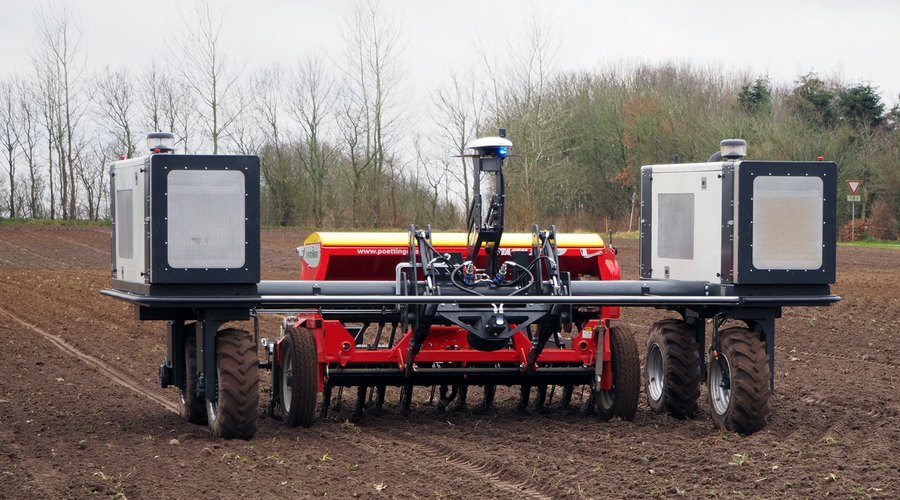New robotic AI will improve sustainability in agriculture
An international team consisting of five universities and three leading industrial companies aims to transform health, food and agriculture technology via new open-source, 'all-round' artificial intelligence for modern and future robots.

The Department of Engineering at Aarhus University and the Danish development company, AGROINTELLI, together with an international team of researchers and companies, have launched a project aimed at making modern robots used in the health, food and agriculture sectors much smarter and more efficient than they are today.
The team will jointly design, develop and train core functionalities of a sort of ‘active artificial perception system’ for robots that goes far beyond the modern computer-vision technology and which will enable robots to perform much more complex tasks in the future.
The project is called Open Deep Learning Toolkit for Robotics (OpenDR), and it aims to develop a new form of modular, open and non-proprietary 'all-round' artificial intelligence toolkit for core robotic functionalities. The toolkit will provide advanced perception and cognition capabilities that meet the general requirements of robotics applications in the areas of healthcare, agri-food and agile production.
"The project will make it possible to improve the autonomy of robots considerably, by using efficient deep-learning techniques for robots with limited processing capacity. This means that the new artificial intelligence capabilities can be fitted to existing robots that are already being used in many different sectors," says Associate Professor Alexandros Iosifidis.
He’s backed by his colleague Associate Professor Erdal Kayacan, who’s also involved in the project:
“We will develop a toolkit for core robotic functionalities by harnessing deep learning to provide advanced perception and cognition capabilities for robots. The impact of the project will be visible via the rapid generation of new perception and control actions that allow safe human-robot collaboration,” he says.
The Danish delegation is focusing on developing advanced solutions for the agricultural sector. AGROINTELLI is already well-known for its autonomous tool carrier, Robotti, and in this context the team will develop and test an intelligent system for mechanical weed control.
Via an on-board camera, Robotti can distinguish between weeds and crops, and initiate mechanical control targeting the weeds. This will improve the sustainability of the production system with minimum impact on the crop and the yield.
“Via deep learning methodologies, we will be able to increase the precision of people-, objects-, and crop detection and classification as well as the autonomy of the Robotti, while simultaneously decreasing the computational power needed for performing the tasks,” says CEO Ole Green at AGROINTELLI.
The EU Research and Innovation Programme, Horizon 2020, has granted EUR 6.6 million for the project. The artificial intelligence being developed in the project will be freely accessible (open-source), and will thus be used across applications and industries.
The project will run from January 2020 to December 2022 and will be carried out in collaboration with a consortium consisting of five universities and three companies: Aristotle University of Thessaloniki (Greece), Tampere University (Finland), Aarhus University, Delft University of Technology (Netherlands), University of Freiburg (Germany), Cyberbotics (Switzerland), PAL Robotics (Spain) and AGROINTELLI.
Contact
Associate Professor Alexandros Iosifidis
Department of Engineering
Mail: ai@eng.au.dk
Tel.: +4593508875
Associate Professor Erdal Kayacan
Department of Engineering
Mail: erdal@eng.au.dk
Tel.: +4593521062
